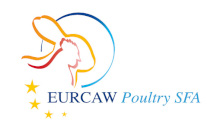Document type : Article published in Le Monde (subscriber edition)
Author: Mathilde Gérard
Preview: The European Parliament's committee of enquiry into the protection of livestock during transport approved its report on Thursday 2 December. While there is unanimous agreement on the current shortcomings, the recommendations have disappointed animal welfare groups.
After 18 months of investigation, MEPs were almost unanimous in finding that the rules on animal transport not only fail to be well respected but are also insufficient to guarantee animal welfare. On Thursday 2 December, the report of the parliamentary committee of enquiry into animal transport was adopted by 30 votes to 0 with 1 abstention.
MEPs were divided on the measures to be taken. While they agreed on the need to strengthen controls during transport, to install video surveillance cameras in lorries and to require the presence of a veterinarian on board vessels transporting livestock, they did not manage to agree on a maximum journey duration, which some MEPs wanted to limit to eight hours (15 votes in favour, 15 against, 1 abstention), nor on a ban on the export of live animals to third countries, on which no consensus was reached.
A number of dramatic events
Every year, 1 billion animals are moved around within the European Union (EU) or to other countries. Over the years, violations of animal transport regulations, as well as their limitations, have been abundantly documented by associations and whistleblowers, but also noted in official reports, for example by the European Commission, on animals exported at sea. Several tragedies have also hit the headlines, such as the sinking of the Queen-Hind at the end of 2019 off the coast of Romania with 14,000 sheep on board, or the two cattle transports that spent almost three months wandering at sea having departed from Cartagena, in Spain, only to be refused entry by all ports, and were then forced to return to their port of origin so that all the animals could be euthanised. [end of text accessible to non-subscribers].




